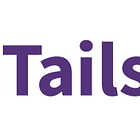What is PGP Encryption?
Encrypt!
Missed last week’s newsletter? Here it is!
Many of you know by now that if you want privacy when it comes to your email, you should eschew Gmail, Outlook, and Yahoo and use a trustworthy and privacy-focused email provider such as Proton, Tuta, or Mailfence. However, for various reasons, not everyone can make the switch and, consequently, is stuck with their non-privacy-focused email provider.
That said, you can still have privacy for your emails even if you don’t use a privacy-focused email provider by using PGP encryption.
What is PGP encryption?
Created in 1991 by Phil Zimmermann, PGP, which stands for “Pretty Good Privacy,” is a type of encryption that allows you to privately and securely send emails that not even the provider will be able to see. When emails are sent with PGP, it changes into ciphertext, which is unreadable, encrypted data. This means that the provider cannot see what is in the email, and the only way to decrypt it is if you have the keys.
PGP, after becoming proprietary software, eventually developed into OpenPGP, an open and free version of PGP that anyone can contribute and use. Proton and Mailfence are examples that use OpenPGP software.
How does PGP work?
The way PGP encryption works is that it creates a public key and private key. The public key can be shared with others so the sender(s) can deliver encrypted mail. However, only the receiver will have the private key that will be able to decrypt the message.
If you want a more in-depth look into PGP encryption, I recommend you read Proton’s blog post.
Why you should you use PGP encryption?
PGP encryption is a great tool to protect your emails from privacy snoops without having to change email providers. Similar to end-to-end encryption, PGP ensures that all communication is between the sender and receiver. Though I recommend making the switch to a privacy-focused email provider, if you are unable to but want more privacy, then PGP encryption is your best bet.
Here are some PGP encryption tools to help you get started.
Mailvelope is a free and open source browser extension that allows you to send encrypted OpenPGP emails. Simply install the extension, set up your PGP key pairs, and you are all set for sending encrypted email. Available for Chrome, Firefox, and Edge browsers.
Fairmail is a free and open source email client for Android and supports OpenPGP. Available to download via Google Play, f-droid, or GitHub. Can be used with Gmail, Outlook, and Yahoo.
Thunderbird is a free and open source email client from Mozilla. It supports OpenPGP. Available to download for Windows, Mac, Linux, and Android.
Let me know in the comments on what has been your experience using PGP encryption.
Until Next Time,
Monique 🔐
Source:
What is PGP encryption and how does it work?
Additional links for further reading:



